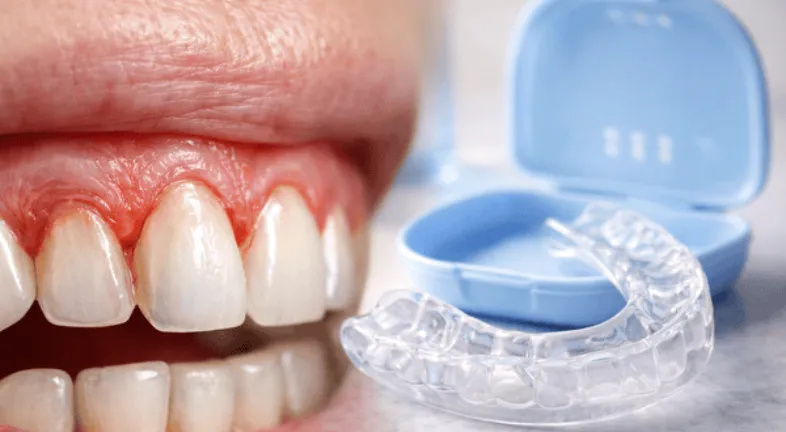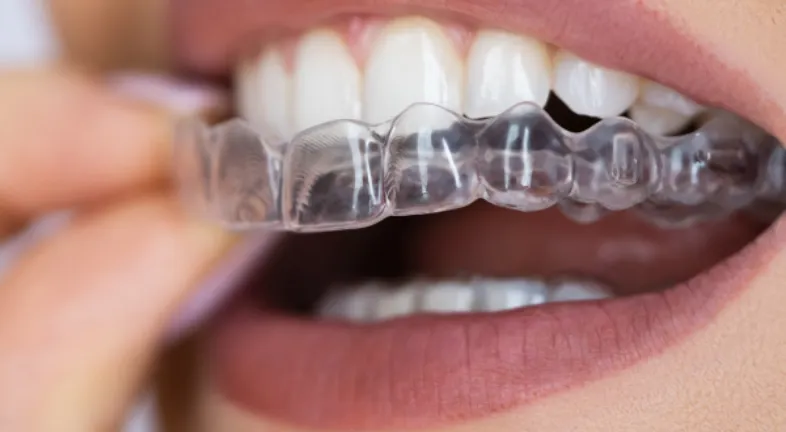
Table of Content
Anybody who is dreaming about a straight Hollywood smile knows that it's an impossible dream. Teeth straightening procedures can be expensive. Besides, as an adult, you might feel that you've missed your chance to get corrective braces. But, in reality, there is another solution to make your Hollywood dream smile come true. Don't worry if you are hesitant to wear metal braces as an adult, there's a way around your problems. Indeed, most people worry that metal braces could be embarrassing in an adult's mouth. However, clear braces could be the solution you need. If you are wondering whether clear braces could help you achieve a straight smile as effectively as metal braces would, here's a quick overview of why more and more braces wearers opt for clear solutions.
Clear braces are almost invisible braces that can correct some of the most common smile issues, namely gapped and crooked teeth. They are fully custom-made to fit your teeth. Clear braces wearers get an impression kit sent at home by a UK-based dentist or orthodontist, which means that the braces are moulded to their unique teeth and ready to wear in no time. Additionally, because of their shape and material, clear braces can be easily removed at any time. Unlike metal braces which need professional equipment to remove, you can take off clear braces whenever you want.
The most important question you need answering is whether clear braces can help you to achieve the same result than metal braces. The answer is yes. Because the teeth straightening process consists of wearing teeth aligners, the custom-made braces do essentially the same job than metal ones. They are fully MHRA and FDA-approved, making them safe to use. Besides, while metal braces need to be worn for, on average, a period of 2 to 3 years, clear braces can redress your teeth in a much shorter period. Additionally, you can remove the braces to brush your teeth, which means you don't have to worry about food getting stuck inside, unlike metal braces wearers.
You can choose to wear your clear braces during daytime or nighttime. Depending on the alignment required and the prolonged wear, you may need to wear your clear braces every day or night for 6 - 14 months. It's typically a shorter period than with metal braces. You're also less likely to experience pain and discomfort as the braces are entirely customised. In other words, you can carry on with your lifestyle without any disruption!
Many at-home companies like Caspersmile offer clear braces for less than £1000. For comparison, that's about a third of what you would spend on metal braces. Their affordable cost doesn't affect their effectiveness or how they will make you feel. When you can get the smile of your dreams for a portion of the cost in the comfort of your home, the question you need to ask yourself is: what am I still waiting for? For anybody uncomfortable with their crooked or gapped smile, clear braces provide not only a reliable and high-quality teeth-straightening solution, but it's also a simple treatment that respects both your wallet and your precious time.
Curated the best for your knowledge
.webp) Cavities: Why Cleaning Your Essix Retainer Is Important
Cavities: Why Cleaning Your Essix Retainer Is ImportantCavities do not usually start with pain; they begin quietly. A thin film of plaque forms, bacteria settle in, and before you realize it, enamel has started to weaken. The risk of cavities often increases when you wear oral appliances like Essix retainers. However, the retainer itself is not the issue; improper maintenance and neglecting cleaning are the main culprits. If you have invested in orthodontic treatment, whether traditional braces or clear aligners, your retainer is what protects that investment. But an unclean one just makes matters worse. So, let’s walk through this guide to understand why cleaning your Essix retainer is important.
Read More Can Mouthguards Cause Gum Recession
Can Mouthguards Cause Gum RecessionMouthguards are usually seen as the “good guys” of dental care. They protect teeth from grinding, cushion heavy bites, and help prevent long-term damage. So when someone notices sore or receding gums while wearing one, confusion sets in fast. Can mouthguards cause gum recession, or is something else going on? The honest answer isn’t a simple yes or no. Gum recession almost never has one single cause. It’s usually the result of pressure, inflammation, habits, and time all working together. Mouthguards can sometimes contribute to irritation, but in many cases, they’re actually helping prevent worse damage. Understanding the difference matters more than blaming the device.
Read More How to Clean Essix Retainers
How to Clean Essix RetainersIf you wear Essix retainers, commonly known as clear retainers, you already know they are both amazing and annoying. Essix retainers are nearly invisible, lightweight, and comfortable. At the same time, they stain easily, hold onto odors, and can appear questionable if not properly cared for. Cleaning Essix retainers sounds simple. Rinse, brush, done. But if you’ve ever pulled yours out of its case and wondered why it smells off or looks slightly yellow, you already know there’s more to it. In this blog, we will guide you through how to clean Essix retainers properly, what to avoid, how often to clean them, and why they change color over time.
Read MoreQuick Links

Heading